Kim Dae-Jung Center Sues An Escapee Lee Ju-Seong for Libel for His Book on Gwangju (5.18) Uprising and North Korean Involvement; Ruling Party Plans 5.18 Gag Law
Tara O, 2020-5-28
On November 7, 2019, Kim Dae-jung Peace Center, on behalf of Lee Hee-ho (이희호, Kim Dae-jung’s wife) sued Lee Joo-seong (이주성), an escapee from North Korea, who wrote and published a book titled Purple Lake (보랏빛호수), for libel. The book is about North Korean involvement in the 1980 Gwangju Uprising, which Koreans refer to as “5.18” (May 18). At a hearing presided by Judge Jin Jae-kyung (진재경), Seoul Western District Court, on April 8, 2020, Prosecutor Kim Sang-gyun (김상균) asked for a 1-year prison sentence for author Lee Joo-seong for defaming former president Kim Dae-jung.
The judge is scheduled to sentence Lee Joo-seong on June 3, 2020 at 9:50 a.m. in Room 304 of Seoul Western District Court (서울서부지방법원).
Lee Ju-seong (이주성), escaped from North Korea, arriving in South Korea in June 2006. In December 2006, he published a booklet describing the 1980 Gwangju Uprising as a special military operation involving the deployment of North Korean forces by Kim Il-sung, at the behest of Kim Dae-jung, to subvert South Korea. (1) This caused quite a stir in South Korea, where“5.18” has become known as a “democracy movement” and a sacred topic. (2)
Purple Lake, published in May 2017, is based on the experience of North Korean special forces operative Jung Soon-sung (정순성) , who said he and others infiltrated South Korea and participated in guerilla operations in Gwangju in May 1980. Lee Ju-seong also described the operation as part of the subversion of South Korea planned by Kim Il-sung, North Korean leader and Kim Dae-jung, who later became South Korea’s president.
Former North Korean special operative Jung has also defected to South Korea, which made Lee’s interview with Sung possible.
In his letter to Judge Jin Jae-kyung, Lee stated his book is based on what he has heard, seen and experienced in North Korea, his interviews, especially with the former North Korean special operative who deployed to Gwangju in May 1980, videos about 5.18, and official and other documents. (3)
In his testimony on April 8, 2020, Lee talked about the time when he was 15 years old in North Korea. On May 19, 1980, there was a notice in North Korea every 10 minutes that there will be important news on Korea Central News Agency (KCNA) that evening; KCNA broadcasted the Gwangju Uprising and that is how he discovered that there was an uprising at a place called Gwangju in South Jeolla Province in South Korea. (4)
Lee began working at a special valve factory called “5.18 Machinery Factory” (5.18 기계공장) in Muncheon City, Gangwon Province as a mechanic. He was curious about the number “5.18” in the factory name and asked what it signified. A senior official explained that “the factory used to be called Muncheon Machinery Factory, but Kim Il Sung ordered the factory be renamed to honor the combat performance and achievements of the soldiers, who deployed to take part in the Gwangju Riot in South Korea. That is when I (Lee) first learned that the Gwangju Riot was a Kim Il Sung-ordered North Korean military operation.” (5)
The following paragraphs are in The Rage of Gwangju (광주의 분노) published by North Korea’s Korea Workers’ Party Publishing (조선노동당 출판사) in 1985: (6)
The rioting mass [in Gwangju in May 1980] acquired 314 military vehicles by ambushing the puppet’s military vehicle [contractor] factory Asia Motors, and also seized an additional 414 other types of vehicles.
The rioting mass rode around in these acquired vehicles and acquired lots of weapons by driving into the bastards’ armories.
Among the rioting mass of 600 people, one team ambushed the puppet military’s 1st Training Center of the 199th Logistics Support Group and stole plenty of weapons, and robbed lots of explosives and charges stored in a separate house in a rocky mountain in Jawon Neighborhood.
Another riot group of 200 drove into the armory of the homeland reserve forces in the downtown and acquired lots of rifles and guns. And [they] surrounded the puppet military’s ‘Martial Law’ zone in front of the ‘Catholic Center’ and stole the bastards’ military vehicles and many buses.
Thus the weapons that the rioters stole on the 21st [of May] from morning to 4 p.m. during the weapons stealing struggle were 2,240 Carbine [shortened rifles), 1,235 “M-1” semi-automatic rifles, 28 guns, 46,400 live ammunition, 4 armored personnel carriers, about 400 military vehicles, 100s of kg of explosives, and 100s of charges.
Lee stated that there is plenty of factual and scientific evidence that North Korea deployed its special forces to Gwanjgu for operations during the Gwangju uprising, but the prosecutors, who are supposed to value judicial independence, justice, conscience, common sense, and fairness, are not interested in the truth, but only in suppressing and abusing authority. (7)
After Lee Ju-seong published his book Purple Lake, he faced additional hardship, including a lawsuit by the Kim Dae-jung Peace Center, and also psychological and physical harassment. On July 29, 2019, 1 a.m., Lee almost died when he was stabbed with a 60 cm (24 inch) long sword. (8)
The most recent lawsuit by the Kim Dae-jung Center is not the only lawsuit. 350 or so 5.18 or related organizations sued and charged him in the past. (9) On May 15, 2013 on Channel A TV, Lee described his interview with a North Korean Special Forces operative Jung Soon-sung (정순성), who deployed to Gwangju on May 21, 1980 as a security guard to protect Moon Je-sim (문제심), the commander of North Korea’s 1010th Unit, who commanded North Korea’s special operations in Gwangju. (10) Numerous “left-wing politicians and Gwangju 5.18 groups” demanded that Lee be punished, and 350 Gwangju 5.18 and related groups filed a lawsuit against Lee. (11) The indictment ended with a suspension.
Lee believes he faces such suppression, because his publications have “revealed the truth about Moon Jae-in and pro-North Korea leftists in South Korea.”
Lee doubts the claim of the Kim Dae-jung Center, which stated that Lee Hee-ho’s dying wish was to sue Lee for defaming her deceased husband (Kim Dae-jung), because Lee Hee-ho has been bedridden with illness. The Center has no written statement or video to produce as evidence. The date of Lee hee-ho’s death was June 10, 2019 (age 96) and the lawsuit was filed on November 3, 2019.
Lee Ju-seong testified that National Assemblymen who had been the followers of Kim Dae-jung, such as Ha Tae-keung (하태경) and others, have systematically agitated to begin the lawsuit, because Lee talked about the linkage between the North Korean regime and South Korea’s left-wing lawmakers, so they are trying to suppress him. (12)
Ha Tae-keung, then National Assemblyman of the Correct Future Party (who defected from the Liberty Korea Party after voting to impeach Park Geun-hye) complained on KBS broadcasted on March 15, 2019 that “the author of this book (Purple Lake) Lee Ju-seong still appears on YouTube. That’s why it (the discussion about North Korea’s involvement in the Gwangju Uprising) won’t disappear. And the Liberty Korea Party is also influenced by this person.” (2:01)
The Holification of 5.18 Gwangju Uprising
Mr. Lee is not the only person to be sued, harassed, and/or punished for discussing North Korean special forces involvement in 5.18 or discussing any information that calls into question the current narrative of the Gwangju Uprising as a democracy demonstration, from which the Moon administration and many politicians derive much of their political capital and legitimacy.
Efforts to suppress Dr. Ji Man-won
Dr. Ji Man-won (지만원) (77 years old), a retired Republic of Korea Army colonel who has published at least nine books about the Gwangju uprising, was been jailed under Kim Dae-jung in 2002, and sued, harassed, and even physically beaten for decades by 5.18 organizations and the City of Gwangju for his writings.
On May 25, 2013, 338 5.18-related organizations, including the 5.18 Commemoration Foundation (5.18 기념제단) and Gwangju Council for Civic Organizations (광주시민단체협의회) formed the “5.18 History Distortion Countermeasures Committee” (5.18 역사왜곡대책위원회)–an organization with the Gwangju Mayor as the committee chair with over 337 members, including dozens of lawyers as key members–to fight against his research. (13)
In 2016, National Assemblyman Park Ji-won (박지원), People’s Party, sued Dr. Ji Man-won, Newstown (a small news outlet with YouTube channel) for libel for “distorting the 5.18 Democratization Movement” into a “North Korean military invasion incident” and calling the “Special Law on 5.18” a “treasonous law that benefits North Korea.”
Dr. Ji has dealt with a stream of lawsuits. He cried out for justice when he remarked, “If there is even one blade of grass called justice growing somewhere in this land…it will be a great comfort to many people.”
Punishing Lawmakers
Three lawmakers of the main opposition party, then called Liberty Korea Party, were punished for holding a public hearing on the Gwangju Uprising, where the issue of North Korean involvement was one of the topics, which was also one of the topics that the Truth Commission on 5.18 was legally bound to investigate, but never did.
The 5.18 organizations blocked the entrance to the hearing and caused a physical mayhem. The Democratic Party of Korea decried the hearing and demanded the three opposition lawmakers be punished. Interestingly, the Liberty Korea Party, led by Kim Byung-joon (김병준), instead of protecting freedom of speech and its party lawmakers, took swift disciplinary actions against the three–National Assemblyman Lee Jong-myeong (이종명), a retired colonel, who lost both of his legs from a North Korean mine in the DMZ, National Assemblyman Kim Jin-tae (김진태), who sponsored the event, but was not present, and National Assemblywoman Kim Soon-rye (김순례), who spoke at the hearing. For details, see here.
After the criticism and his party’s “Ethics Committee” decided to expel Lee Jong-myeong, Lee stated “it is the basic duty of a national assembly representative to investigate and collect various inputs on whether or not North Korean forces intervened or North Korean forces infiltrated, which is within the scope of the ‘5.18 Truth Investigation Law’ passed with the agreement of the ruling and opposition parties.”
Constitutionalizing 5.18
In early 2018, when the ruling Democratic Party of Korea (DPK, Deobureo Minjoo Party) lawmakers tried to delete “freedom” from South Korea’s constitution, they also wanted to add “5.18 spririt” in the constitution. On May 14, 2020, president Moon Jae-in expressed his firm will to include “5.18 spirit” in the constitution. On May 18, 2020, Moon also said “distortion and damage will no longer stand,” when he gave an address marking the 40th anniversary of the Gwangju Uprising, which is ominous as it means further suppression of freedom of speech, especially in discussing what really occurred over the 10 days in May 18-27, 1980, including whether North Korean special operations forces were involved, as described in Purple Lake.
Criminalizing Free Speech
Various lawmakers in the ruling party have introduced proposals that criminalize discussions that raise questions about the 5.18 narrative. National Assemblyman Park Kwang-on (박광온) proposed the “Distortion of 5.18 Special Law Amendment,” which imposes seven years or a ₩70,000,000 ($62,000) fine, and his party adopted the amendment as his party platform in 2018. It imposes fines upon:
- “a person who distorts, falsifies, and spreads false propaganda through newspapers, magazines, broadcasts, publications, concerts, exhibitions, documents, pictures/paintings, etc.”
- “those who insult or slander organizations related to the 5.18 democracy movement”
It also mandates the government to make “5.18” a part of history education and human rights education.
With the landslide election win (although controversy swirls about election fraud), the ruling Democratic Party of Korea can easily pass laws. DPK’s National Assemblyman Lee Gae-ho (이개호) announced that he will propose “the Special Act on the 5.18 Democratization Movement” (5·18 민주화운동 특별법) as the first legislation for the 21st National Assembly, which begins on May 30, 2020. Lee stated, “I will prevent distortion by law and inherit the spirit of Gwangju.” The proposal is similar to the one adopted by his party above, and is designed to penalize discussions on 5.18, which is suppression of freedom of speech.
The Democratic Party of Korea also plans to stipulate “jechang” (singing together with common movement and purpose) of the “March For My Beloved” (임을 위한 행진곡), a song that symbolizes 5.18, and is a song preferred by the ruling party over the National Anthem, at 5.18 commemoration events. At Kim Il Sung’s invitation, Hwang Sok-yong (황석영) went to North Korea and created the “March For My Beloved” for a Kim Il Sung-commissioned musical about the Gwangju Uprising, A Symphonic Poem for My Beloved. For more on the “March for My Beloved,” see here.
March for My Beloved “Jechang”–singing together with same purpose, in this case, holding/swinging arms together
Human Rights,the South Korean Constitution, and the Universal Declaration of Human Rights
Freedom of speech and publishing is guaranteed by the constitution of the Republic of Korea. The freedom is also highlighted in the Universal Declaration of Human Rights, the foundational document of the UN, where the Republic of Korea is a member.
Article 21 of the South Korean Constitution states: “All citizens have freedom of speech and publishing and freedom of assembly and association.”
The Universal Declaration of Human Rights, states:
- Article 19: “Everyone has the right to freedom of opinion and expression.”
- Article 8: “Everyone has the right to an effective remedy by competent national tribunals for acts violating the fundamental rights granted him by the constitution or by law.”
It is ironic that those who insist that the Gwangju Uprising is a “Democratization Movement” are in the forefront of trampling on freedom of speech that is guaranteed by South Korea’s constitution as well as the ideals of liberal democracy as reflected in the Universal Declaration of Human Rights.
Lee Ju-seong stated in his Final Affidavit, “I risked my life in search of freedom and came to the Republic of Korea, a so-called democratic country, and told the truth. I’m becoming a sacrificial lamb of the prosecutor’s lawfare for telling the truth, and I will never forget this horrible feeling.” (14)
Mr. Lee Ju-seong, Dr. Ji Man-won, Newstown, and others should be able to discuss the Gwangju incident freely, without the fear of imprisonment, financial bankruptcy, and physical and psychological harm that they have been subjected to. Their human rights have been violated. The court should dismiss the cases. The judiciary, legislative, and executive branches of South Korea should uphold the constitution and the ideals of the Universal Declaration of Human Rights.
References (other than hyperlinked ones):
- Lee Ju-seong, Lee Je-seong Profile, May 18, 2020, Seoul, 2.
- Ibid.
- Lee Ju-seong, Letter to Judge Jin Jae-kyung, May 23, 2020, 1.
- Lee Ju-seong, Testimony, Seoul Western District Court, April 8, 2020, 2.
- Ibid, 2-3.
- Kim Sun-chul, ed., 광주의 분노 (The Rage of Gwangju), Korea Workers’ Party Publishing (조선노동당 출판사): Pyongyang, May 28, 1985, 35.
- Lee Ju-seong, Final Affidavit, Seoul Western District Court, April 12, 2020, 2.
- Lee Je-seong Profile, 2.
- Lee Ju-seong, Testimony, 2-3.
- Interview with Lee Ju-seong, May 25, 2020.
- Ibid.
- Profile, 2.
- Ji Man-won, 뚝섬무지개 (The Rainbow of Ttuk Island: The Road that No One Travels), System Publishing: Seoul, 2018 (revised), 435.
- Lee Ju-seong, Final Affidavit, Seoul Western District Court, April 12, 2020, 5.
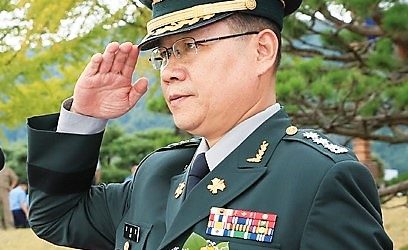
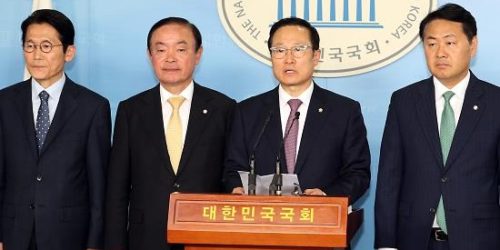
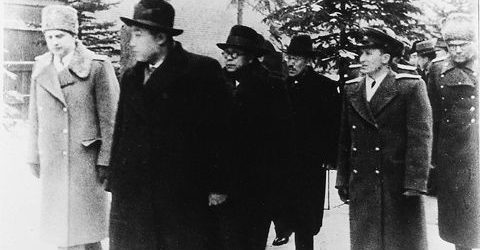
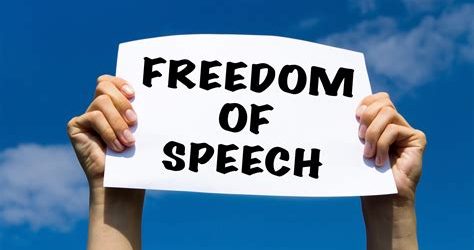
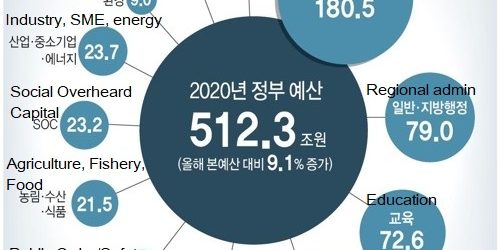
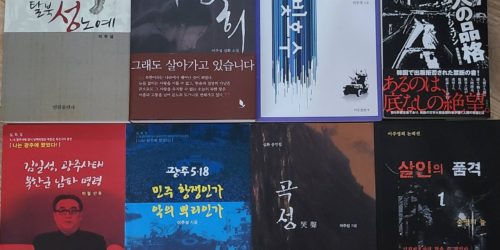
I think most Koreans are just oblivious to what freedom of speech is and why it should be protected. And to an extent, they don’t understand their freedom of speech is being violated by the many incidents mentioned in this article. I think this is due to the confucianist social dynamics: Koreans are taught to be obedient to their authorities and elders since birth.
Hi, How can I get copies of this book? Thanks